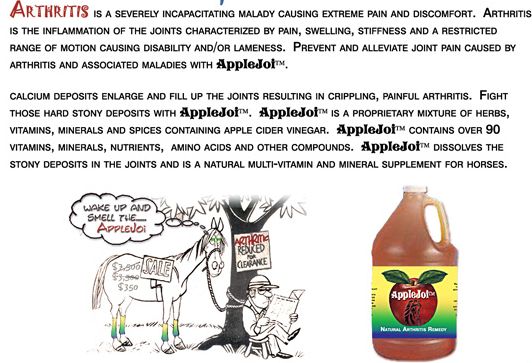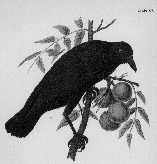|
|
|
|
 Dr.
Jarvis' Unpublished Notebook Dr.
Jarvis' Unpublished Notebook
-147 hand written pages of advice to correspondents- CD-PDF Format $49.95 ea. Includes Shipping |
The Remarkable Raspberry
A good source of Ellagic Acid
by Norma Whitehead
Although many people display allergic symptoms to strawberries, few cannot
indulge in the winey fruit
that ripens in the hottest part of summer, the raspberry.
The fruit is lovely, but the healthful properties in the leaves, root and
bark are so valuable, raspberry is
known as the "Woman's Herb". Species Rubus idaeus, family Rosacaea, raspberry
is a relative of the
rose, famous for vitamin C in the rose hip. Raspberry leaves (and fruit)
are rich in citric acid, malic
acid, tartaric acid, citrate, malate and tartarate of iron, potassium and
calcium, calcium and potassium
chloride, sulphate and phosphate, pectin, fragrine (an alkaloid that tones
the tissues), a volatile oil,
vitamins A, B, C, E, and fructose. The action is astringent, tonic, refrigerant,
parturient, hemostatic,
anti-septic, anti-abortient, anti-gonorrheal, anti-leucorrheal and anti-malarial.
Alma Hutchens (Indian Herbology) says raspberry leaf tea "can be taken
freely before, during
and after confinement, rendering parturition less laborious." Regular drinking
throughout
pregnancy strengthens and tones tissues, helping contractions and checks
hemorrhage during labour.
A perfectly safe drink (unlike black tea or coffee which contain caffeine)
raspberry tea also
enriches milk and helps prevent miscarriage.
In case of leucorrhea (mucous discharge from genitals), raspberry leaf
douche is made by
simmering 1 tablespoon of leaves in one pint of water for 10 minutes, covered,
cooled, strained and
used at room temperature.
Raspberry tea has helped with painful menstruation and flow, and lessens
an over-abundant period. At
menopause the adrenals are geared to take over as the ovaries gradually
cease functioning; many
menopausal symptoms are caused by exhausted adrenals. The herb best suited
to help is raspberry
leaf. Men in mid-life crisis with exhausted adrenals are well-advised to
drink the tea also.
Red raspberry tea with red clover (one or more cups daily for several months)
promotes fertility in
men and women, prevents post-partum depression and hypertension, and with
blessed thistle,
increases breast- milk production.
Diarrhea, thrush, sore throat, canker sores, dysentery, urinary complaint,
cold and fever sufferers find
red raspberry tea is a reliable remedy.
Pour one cup boiling water over a teaspoon of dried leaves and let it steep
at least 15 minutes. Drink
and heal.
Harvest wild or tame raspberry leaves in spring or mid-summer for maximum
potency. Use them
freshly picked, but dry them for storage away from the light. They dry
nicely spread thinly on a cotton
sheet hung hammock fashion from the ceiling.
Raspberry leaf tea is an ideal beverage for reproductive women, the elderly,
anyone in recovery,
teenagers and children.
Abundant in potassium (441 ppm), calcium (121 ppm) and magnesium (93 ppm),
it is also rich in all
important trace minerals such as manganese (.52 ppm), zinc (.35 ppm), iron
(.04 ppm) and chromium
(.02 ppm). Raspberry leaf tea is a gentle, soothing, nourishing drink -
morning, noon and night.
Rinse your teapot with hot water, add a handful of raspberry leaves, cover
with
boiling water and let steep ten minutes. Raspberry leaf tea is precious
hot or cold; if you intend to keep
it overnight it is best stored in the fridge. Raspberry leaf tea popsicles
are a delight not to be missed in
this lifetime. Simply pour cooled tea into an ice-cube tray and remove
when frozen. Please let us know
your experiences with raspberry leaf tea.
|
|
|
|
|
|

|
|
|
 Dr.
Jarvis' Unpublished Notebook Dr.
Jarvis' Unpublished Notebook
-147 hand written pages of advice to correspondents- CD-PDF Format $49.95 ea. Includes Shipping |
|
|
"If you care to go to school go to the honey bees, fowl,
cats, dogs, goats, mink, calves, dairy cows, bulls and horses and allow
them to teach you their ways, you will gain an insight
into physiological and biochemical medicine not to be learned from medical
books. Verified by observing results in animals, this
medicine, which is passed from generation to generation by word of mouth
enables great numbers of Vermonters to continue carrying
heavy daily work loads and to go on well past the Scriptural three-score-and-ten
years into good physical and mental vigor, good digestion, good eyesight
and good hearing, avoiding senility
 |
Ellagic Acid
Early evidence shows that ellagic acid acts as a scavenger to "bind" or chemically engage cancer-causing chemicals, making them inactive. In addition, this fused bi-nuclear coumarin derivative prevents the binding of carcinogens to DNA and reduces the incidence of cancer in cultured human cells exposed to carcinogens.
Ellagic acid is widely found in plants such as raspberries, strawberries, blackberries, cranberries, walnuts, and pecans, but the greatest amounts have been observed in raspberries. While the leaves of these plants contain the highest concentrations of ellagic acid, the compound is also found in their fruits and nuts.
Although ellagic acid is the bioactive agent that offers protection,
the phytochemical is generally ingested in the form of another biochemical
called ellagitannin. Plants produce ellagic acid and glucose that combine
to form ellagitannins, which are water-soluble compounds that are easier
for animals to absorb in their diets. Consequently, small amounts of ellagitannins
derived from natural sources may be more effective in the human diet than
large doses of purified ellagic acid.
|
|